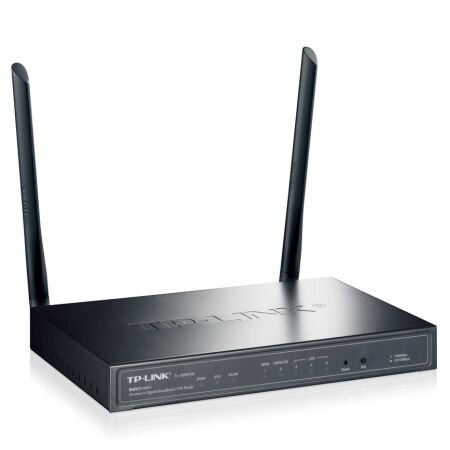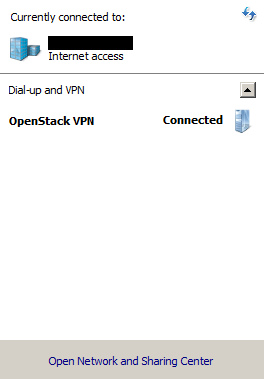
Surveillance and advanced online anonymity
It is almost impossible to track your online movement with the Multi VPN because your IP address bounces between multiple VPN servers. Even if someone is tracking you, he will be unable to track your traffic as your traffic is going through multiple VPNs in different regions. This simple technique provides the ultimate privacy and it is perfect for you if you want the ultimate online privacy. Since a Multi-Hop VPN involves the use of more than one VPN server, there are two ways to implement them.
That means no one node has knowledge of the entire route that your traffic takes to its destination. Similar to a multi-hop VPN, each node removes a layer of encryption, revealing the IP address of the next node in the chain.
IVPN (two hops)
Increasing your security to the highest of levels and preventing unauthorized surveillance are its main goals. Let’s say China blocks or throttles all internet traffic to the US, including US-based VPN servers. If you need to access some content that’s only available in the US, switching to a different country won’t suffice. Instead, a multi-hop VPN could allow you to connect to Canada (or another country) first, and then the US.
To start off (and as it normally does), your device encrypts your data and sends it to the first VPN server in the chain. So, instead of having your traffic pass through two VPN servers, you can have it pass through three or four servers, for instance. Each servers offers an extra layer of encryption and adds another IP address in the mix, further securing your online identity. Yes, you aren’t actually restricted to just two simultaneous VPN connections. When you do that, though, it’s no longer called a double VPN connection but VPN chaining, VPN cascading, or a multihop VPN (since the traffic hops through multiple servers).
Routing your traffic through two or more servers in separate jurisdictions gives you a higher level of privacy and security – even if one server were to be compromised. Multi-Hop VPNs are another form of VPN server cascading and have become synonymous with double VPNs. With a multi-hop VPN, you aren’t restricted to just two simultaneous VPN connections, but can actually have multiple VPN connections at the same time. Well, they do offer a bigger level of security and online privacy, but they can also impact your connection speeds negatively, and slow them down quite a bit. Overall, these kinds of VPN connections are more suitable for people who require a lot of Internet security – like journalists and whistleblowers, for example.

A small handful of VPN providers offer multi-hop VPNs as part of their subscriptions. Our top recommendation is NordVPN, which runs a couple dozen double-hop VPNs to multiple countries. You also get a no-logs policy, fast servers, live support, and strong encryption. Now that we’ve seen what multi-hop VPNs are all about let’s look at a few VPN services that implement multi-hop connections.
In other words, it creates two parallel tunnels instead of a tunnel inside a tunnel. Each time you access a different domain, your internet traffic takes a different, random route through the Tor network. Each node only knows the location of other nodes that immediately precede and follow it.
The main and single issue with setting a double VPN connection or a multihop VPN chain is the decrease in connection speeds. After all, we’re talking about having your connection go through two or more VPN servers and multiple encryption processes at the same time. Simply put, a multi-hop VPN adds an extra layer of encryption and an additional server to your normal VPN connection by “chaining” or “cascading” two or more VPN servers together. The purpose is to boost the security and privacy provided by a standard, single-server VPN connection. By adding in additional VPN servers (or even using multiple VPN services together), they can increase the strength of your security and improve your privacy.
- The main and single issue with setting a double VPN connection or a multihop VPN chain is the decrease in connection speeds.
- Simply put, a multi-hop VPN adds an extra layer of encryption and an additional server to your normal VPN connection by “chaining” or “cascading” two or more VPN servers together.
- After all, we’re talking about having your connection go through two or more VPN servers and multiple encryption processes at the same time.
One approach is to use a single VPN service that supports routing your message traffic through two or more of its own VPN servers. The other approach is to use two or more VPN services and pass your message traffic through them in sequence. Instead, NordVPN can route your traffic through one of its secure VPN servers and then directly to the Tor network. The NordVPN service can protect all of the traffic on your device, not just your browser activity. True to its name, a multi-hop VPN sends your traffic hopping through multiple servers before it exits onto the public internet.
The censor won’t be able to monitor for the US server, and therefore allows the connection to pass through. Multi-hop VPNs are sometimes called double VPNs, although any number of VPN servers can be included in the chain. In practical terms, this means that your message traffic will pass through at least two VPN servers instead of one as in a regular VPN. A multi-hop VPN simply encrypts your connection across two or more servers (multiple hops) before exiting on to the regular internet.
These will all be cascaded chain connections since we know of no one offering a commercial nested chain service. Some VPNs let you cascade 3, even 4 VPN Servers before the messages exit the VPN network. You could probably even set up a system that automatically switches servers within the VPN network (similar to the way Tor changes things up every few minutes). ExpressVPN proves time and time again that they can access any US-based content from around the world with great speed. NordVPN also can, and with over 1,100 servers in the US alone, you’ll never have a problem connecting.
Double-hop VPNs
Instead of two servers, your traffic can pass through three or four servers –each additional server adds a new layer of encryption and another IP address. But, if your internet connection is not the quickest to start with, the extra hit in performance makes double VPNs poorly suited for any online activity which requires speed and low latency. Think downloading large files, streaming video, playing games, or using a VoIP service.
Typically, when you connect to VPN, your traffic travels through a remote VPN server, which changes your IP address and encrypts all the data that you send or receive over the internet. Due to this setup, no snoopers or cybercriminals can see what you are doing online. It is possible to connect two VPN clients to separate servers at the same time on a single device. However, this will generally not result in a multi-hop VPN as we have described above. Instead, multiple VPNs on a single device are typically set up for split tunneling.
A normal setup like this provides sufficient privacy and security for most users. Even though your traffic is encrypted, it can still be correlated to unencrypted traffic through time stamps, amount of data transferred, and the IP addresses of VPN server. A multi-hop VPN adds an extra layer of encryption and an additional server to your normal VPN connection by “chaining” or “cascading” two or more VPN servers together. In this article, we’ll go into detail about how multi-hop VPNs work and why someone might need one. As the name hints at, a double VPN (also sometimes called a multihop VPN) routes your data via not one but two VPN servers as it travels between your device and the internet.
What is a multi hop VPN?
A multi-hop VPN adds an extra layer of encryption and an additional server to your normal VPN connection by “chaining” or “cascading” two or more VPN servers together. Multi-hop VPNs are sometimes called double VPNs, although any number of VPN servers can be included in the chain.
A double VPN connection is essentially when you use two VPN servers at the same time. Your traffic gets encrypted twice, and your geo-location is hidden behind two IP addresses. Multiple VPN server connections at the same time are possible too (like up to three, four, or more), and when you do that, it’s called VPN cascading, multihop VPN connectivity, or a VPN chain. The company offers Double the VPN feature which provides the extra layer of privacy. It also comes with some advanced features such as DNS Leak Protection and Automatic Kill Switch which ensure that your online privacy is intact.
While the name might imply you’re using 2 VPNs at the same time, that’s not usually the case – unless you’re setting up a double VPN connection with two different VPN providers. Normally, a double VPN connection is when you use two VPN servers at the same time. This is because your traffic goes through two VPN servers, which improves security but also makes the journey longer. The biggest advantage of Multi VPN is that it provides the ultimate online privacy.
Automatic Kill Switch is your last line of defense and it continuously monitors the connection between your device and VPN servers. It automatically blocks the internet when it detects the drop in connection to protect your identity. Multi-hop VPNs mitigate some of the traffic correlation risks associated with single server VPN connections, but they won’t protect you from nefarious VPN providers. If both of the servers in the chain belong to the same provider, it would be simple for that provider to monitor your online activity and keep logs of what you do online. Because the provider has control of both servers, using a double VPN does nothing to protect from the VPN provider.


